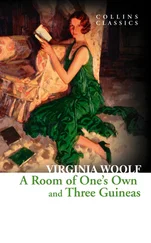Virginia Woolf - Jacob's Room
Здесь есть возможность читать онлайн «Virginia Woolf - Jacob's Room» весь текст электронной книги совершенно бесплатно (целиком полную версию без сокращений). В некоторых случаях можно слушать аудио, скачать через торрент в формате fb2 и присутствует краткое содержание. Жанр: Классическая проза, на английском языке. Описание произведения, (предисловие) а так же отзывы посетителей доступны на портале библиотеки ЛибКат.
- Название:Jacob's Room
- Автор:
- Жанр:
- Год:неизвестен
- ISBN:нет данных
- Рейтинг книги:3 / 5. Голосов: 1
-
Избранное:Добавить в избранное
- Отзывы:
-
Ваша оценка:
- 60
- 1
- 2
- 3
- 4
- 5
Jacob's Room: краткое содержание, описание и аннотация
Предлагаем к чтению аннотацию, описание, краткое содержание или предисловие (зависит от того, что написал сам автор книги «Jacob's Room»). Если вы не нашли необходимую информацию о книге — напишите в комментариях, мы постараемся отыскать её.
Jacob's Room — читать онлайн бесплатно полную книгу (весь текст) целиком
Ниже представлен текст книги, разбитый по страницам. Система сохранения места последней прочитанной страницы, позволяет с удобством читать онлайн бесплатно книгу «Jacob's Room», без необходимости каждый раз заново искать на чём Вы остановились. Поставьте закладку, и сможете в любой момент перейти на страницу, на которой закончили чтение.
Интервал:
Закладка:
"How you frightened me!" she had cried. She thought something dreadful had happened. And he woke Rebecca, who had to be up so early.
There he stood pale, come out of the depths of darkness, in the hot room, blinking at the light.
No, it could not be a straw-bordered underwing.
The mowing-machine always wanted oiling. Barnet turned it under Jacob's window, and it creaked-creaked, and rattled across the lawn and creaked again.
Now it was clouding over.
Back came the sun, dazzlingly.
It fell like an eye upon the stirrups, and then suddenly and yet very gently rested upon the bed, upon the alarum clock, and upon the butterfly box stood open. The pale clouded yellows had pelted over the moor; they had zigzagged across the purple clover. The fritillaries flaunted along the hedgerows. The blues settled on little bones lying on the turf with the sun beating on them, and the painted ladies and the peacocks feasted upon bloody entrails dropped by a hawk. Miles away from home, in a hollow among teasles beneath a ruin, he had found the commas. He had seen a white admiral circling higher and higher round an oak tree, but he had never caught it. An old cottage woman living alone, high up, had told him of a purple butterfly which came every summer to her garden. The fox cubs played in the gorse in the early morning, she told him. And if you looked out at dawn you could always see two badgers. Sometimes they knocked each other over like two boys fighting, she said.
"You won't go far this afternoon, Jacob," said his mother, popping her head in at the door, "for the Captain's coming to say good-bye." It was the last day of the Easter holidays.
Wednesday was Captain Barfoot's day. He dressed himself very neatly in blue serge, took his rubber-shod stick-for he was lame and wanted two fingers on the left hand, having served his country-and set out from the house with the flagstaff precisely at four o'clock in the afternoon.
At three Mr. Dickens, the bath-chair man, had called for Mrs. Barfoot.
"Move me," she would say to Mr. Dickens, after sitting on the esplanade for fifteen minutes. And again, "That'll do, thank you, Mr. Dickens." At the first command he would seek the sun; at the second he would stay the chair there in the bright strip.
An old inhabitant himself, he had much in common with Mrs. Barfoot-James Coppard's daughter. The drinking-fountain, where West Street joins Broad Street, is the gift of James Coppard, who was mayor at the time of Queen Victoria's jubilee, and Coppard is painted upon municipal watering-carts and over shop windows, and upon the zinc blinds of solicitors' consulting-room windows. But Ellen Barfoot never visited the Aquarium (though she had known Captain Boase who had caught the shark quite well), and when the men came by with the posters she eyed them superciliously, for she knew that she would never see the Pierrots, or the brothers Zeno, or Daisy Budd and her troupe of performing seals. For Ellen Barfoot in her bath-chair on the esplanade was a prisoner-civilization's prisoner-all the bars of her cage falling across the esplanade on sunny days when the town hall, the drapery stores, the swimming-bath, and the memorial hall striped the ground with shadow.
An old inhabitant himself, Mr. Dickens would stand a little behind her, smoking his pipe. She would ask him questions-who people were-who now kept Mr. Jones's shop-then about the season-and had Mrs. Dickens tried, whatever it might be-the words issuing from her lips like crumbs of dry biscuit.
She closed her eyes. Mr. Dickens took a turn. The feelings of a man had not altogether deserted him, though as you saw him coming towards you, you noticed how one knobbed black boot swung tremulously in front of the other; how there was a shadow between his waistcoat and his trousers; how he leant forward unsteadily, like an old horse who finds himself suddenly out of the shafts drawing no cart. But as Mr. Dickens sucked in the smoke and puffed it out again, the feelings of a man were perceptible in his eyes. He was thinking how Captain Barfoot was now on his way to Mount Pleasant; Captain Barfoot, his master. For at home in the little sitting-room above the mews, with the canary in the window, and the girls at the sewing-machine, and Mrs. Dickens huddled up with the rheumatics-at home where he was made little of, the thought of being in the employ of Captain Barfoot supported him. He liked to think that while he chatted with Mrs. Barfoot on the front, he helped the Captain on his way to Mrs. Flanders. He, a man, was in charge of Mrs. Barfoot, a woman.
Turning, he saw that she was chatting with Mrs. Rogers. Turning again, he saw that Mrs. Rogers had moved on. So he came back to the bath-chair, and Mrs. Barfoot asked him the time, and he took out his great silver watch and told her the time very obligingly, as if he knew a great deal more about the time and everything than she did. But Mrs. Barfoot knew that Captain Barfoot was on his way to Mrs. Flanders.
Indeed he was well on his way there, having left the tram, and seeing Dods Hill to the south-east, green against a blue sky that was suffused with dust colour on the horizon. He was marching up the hill. In spite of his lameness there was something military in his approach. Mrs. Jarvis, as she came out of the Rectory gate, saw him coming, and her Newfoundland dog, Nero, slowly swept his tail from side to side.
"Oh, Captain Barfoot!" Mrs. Jarvis exclaimed.
"Good- day, Mrs. Jarvis," said the Captain.
They walked on together, and when they reached Mrs. Flanders's gate Captain Barfoot took off his tweed cap, and said, bowing very courteously:
"Good- day to you, Mrs. Jarvis."
And Mrs. Jarvis walked on alone.
She was going to walk on the moor. Had she again been pacing her lawn late at night? Had she again tapped on the study window and cried: "Look at the moon, look at the moon, Herbert!"
And Herbert looked at the moon.
Mrs. Jarvis walked on the moor when she was unhappy, going as far as a certain saucer-shaped hollow, though she always meant to go to a more distant ridge; and there she sat down, and took out the little book hidden beneath her cloak and read a few lines of poetry, and looked about her. She was not very unhappy, and, seeing that she was forty-five, never perhaps would be very unhappy, desperately unhappy that is, and leave her husband, and ruin a good man's career, as she sometimes threatened.
Still there is no need to say what risks a clergyman's wife runs when she walks on the moor. Short, dark, with kindling eyes, a pheasant's feather in her hat, Mrs. Jarvis was just the sort of woman to lose her faith upon the moors-to confound her God with the universal that is-but she did not lose her faith, did not leave her husband, never read her poem through, and went on walking the moors, looking at the moon behind the elm trees, and feeling as she sat on the grass high above Scarborough... Yes, yes, when the lark soars; when the sheep, moving a step or two onwards, crop the turf, and at the same time set their bells tinkling; when the breeze first blows, then dies down, leaving the cheek kissed; when the ships on the sea below seem to cross each other and pass on as if drawn by an invisible hand; when there are distant concussions in the air and phantom horsemen galloping, ceasing; when the horizon swims blue, green, emotional-then Mrs. Jarvis, heaving a sigh, thinks to herself, "If only some one could give me... if I could give some one..." But she does not know what she wants to give, nor who could give it her.
"Mrs. Flanders stepped out only five minutes ago, Captain," said Rebecca. Captain Barfoot sat him down in the arm-chair to wait. Resting his elbows on the arms, putting one hand over the other, sticking his lame leg straight out, and placing the stick with the rubber ferrule beside it, he sat perfectly still. There was something rigid about him. Did he think? Probably the same thoughts again and again. But were they "nice" thoughts, interesting thoughts? He was a man with a temper; tenacious, faithful. Women would have felt, "Here is law. Here is order. Therefore we must cherish this man. He is on the Bridge at night," and, handing him his cup, or whatever it might be, would run on to visions of shipwreck and disaster, in which all the passengers come tumbling from their cabins, and there is the captain, buttoned in his pea-jacket, matched with the storm, vanquished by it but by none other. "Yet I have a soul," Mrs. Jarvis would bethink her, as Captain Barfoot suddenly blew his nose in a great red bandanna handkerchief, "and it's the man's stupidity that's the cause of this, and the storm's my storm as well as his"... so Mrs. Jarvis would bethink her when the Captain dropped in to see them and found Herbert out, and spent two or three hours, almost silent, sitting in the arm-chair. But Betty Flanders thought nothing of the kind.
Читать дальшеИнтервал:
Закладка:
Похожие книги на «Jacob's Room»
Представляем Вашему вниманию похожие книги на «Jacob's Room» списком для выбора. Мы отобрали схожую по названию и смыслу литературу в надежде предоставить читателям больше вариантов отыскать новые, интересные, ещё непрочитанные произведения.
Обсуждение, отзывы о книге «Jacob's Room» и просто собственные мнения читателей. Оставьте ваши комментарии, напишите, что Вы думаете о произведении, его смысле или главных героях. Укажите что конкретно понравилось, а что нет, и почему Вы так считаете.











